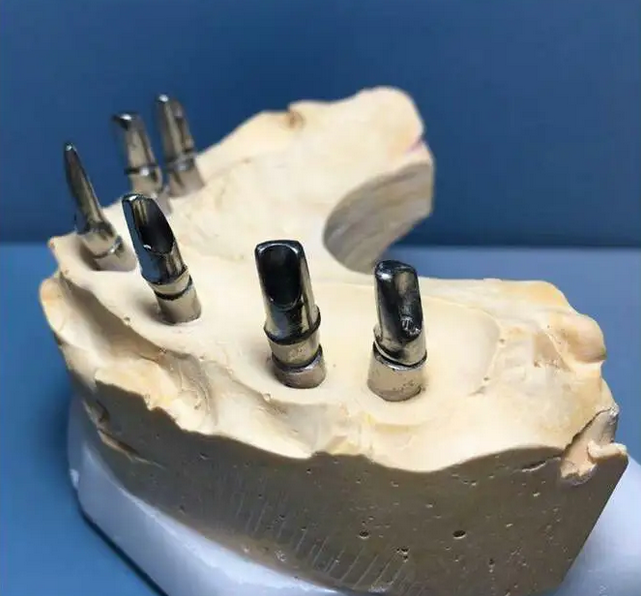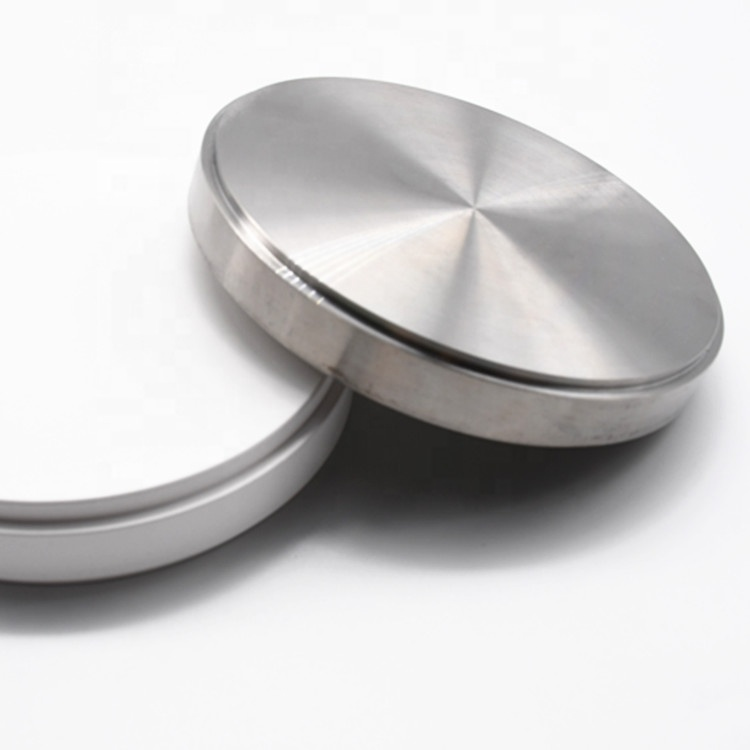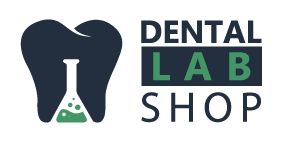Blog
“Unlocking the Power of Dental Lab Titanium Implant Abutments: The Key to Successful Restorations”

Why titanium materials are ideal for the choice of customized abutment
Titanium is a popular choice for implant abutments for several reasons. First, it is a biocompatible material, meaning it is unlikely to cause an adverse reaction in the body. It is also strong, lightweight, and corrosion-resistant, making it a durable and long-lasting material for dental restorations. Additionally, the surface of titanium can be treated to promote osseointegration or the process by which bone tissue fuses with the implant, increasing the stability of the implant.

However, there are cases where a zirconia abutment may be preferred, particularly for anterior implant restorations. Zirconia is a type of ceramic material that is biocompatible, has high translucency, and is very aesthetically pleasing, making it an excellent choice for front teeth restorations. It can be color-matched to surrounding teeth, making it virtually indistinguishable from natural teeth. Additionally, zirconia is very strong and can withstand the forces of biting and chewing.

Ultimately, the choice of abutment material will depend on various factors, including the location of the implant, the patient’s oral health, aesthetic concerns, and the dental practitioner’s preference and expertise. A skilled dental lab technician can work with the dental practitioner to choose the right abutment material and produce a high-quality restoration that meets the patient’s needs and expectations.
How are they produced in a dental lab?
- Design and Planning: The first step is to design the abutment to fit the specific implant and the patient’s anatomy. The dental lab will work with the dental practitioner to obtain the necessary information to create a precise digital model.
- CAD/CAM Design: The digital model uses computer-aided design (CAD) software to design the abutment. The software allows the technician to adjust the size, shape, and orientation of the abutment to ensure a proper fit.
- Fabrication: After the design is complete, the abutment is fabricated using a milling machine or 3D printer. The milling machine or 3D printer uses the CAD model to produce the abutment from a solid block of titanium or a titanium alloy.
- Polishing and Finishing: Once the abutment is fabricated, it is polished and finished to achieve a smooth and aesthetically pleasing surface. This can involve polishing with a series of diamond-coated burs or using a blasting machine to achieve the desired surface texture.
- Quality Control: Before the abutment is sent to the dental practitioner, it undergoes a rigorous quality control process to ensure that it meets the necessary standards of fit, function, and aesthetics.
- Final Delivery: Once the abutment passes quality control, it is delivered to the dental practitioner. The dental practitioner will then place the abutment on the implant and attach the final restoration, such as a crown or bridge.
Producing titanium implant abutments in a dental lab involves a combination of design, CAD/CAM fabrication, polishing and finishing, quality control, and final delivery. By following these steps and using the latest technology, dental labs can produce high-quality abutments that are precise, durable, and aesthetically pleasing, helping to improve the oral health and appearance of their patients.
Choosing a professional dental lab supplier
When it comes to choosing a dental lab supplier for producing customized titanium implant abutments, there are a few key factors to consider. Here are some tips to help you make the right choice:
- Experience: Look for a supplier with extensive experience in producing customized implant abutments. This will ensure that they have the knowledge and expertise to create a high-quality product that meets your specifications.
- Quality: Quality is paramount when it comes to dental restorations. Make sure your supplier uses high-quality materials and has strict quality control measures in place to ensure that the finished product is of the highest possible standard.
- Communication: Good communication is essential when working with a dental lab. Look for a supplier who is responsive and easy to work with, and who will keep you informed throughout the production process.Customization options: Every patient is different, and their dental restorations should reflect this. Look for a supplier who offers a wide range of customization options, including different abutment shapes, sizes, and colors.
- Price: While price shouldn’t be the only factor you consider, it is important to find a supplier who offers competitive pricing for their products and services.
By taking these factors into account, you can choose a dental lab supplier that will produce customized titanium implant abutments to your exact specifications, helping you provide the best possible care to your patients.
At Dental Lab Shop, we are committed to providing the highest quality dental lab products to our customers worldwide. We are proud to offer grade 5 dental titanium blocks that are perfect for a wide range of dental restorations, from single crowns to full arch implant-supported restorations. Our titanium blocks are in stock and ready to ship, so you can receive your order quickly and start using our products right away. We understand that time is of the essence in the dental industry, and we strive to provide our customers with fast and reliable service. Whether you’re a large dental lab or a solo practitioner, we are here to meet your needs and help you provide the best possible care to your patients.
Contact us today to learn more about our titanium blocks and other dental alloy products, and let us help you take your practice to the next level.
